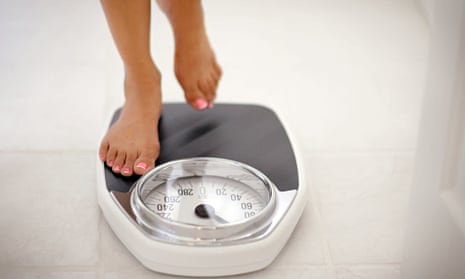Over the past year, my teenage daughter has lost a dramatic amount of weight. She smiles and says she doesn’t have any problems and dismisses any concern that I (or others) express over her weight loss. She has become obsessed by food and cookery programmes and gives us the impression of eating more than she obviously does.
I had postnatal depression after her birth, followed by miscarriages, so she did not get a good start. When she was younger, my husband and I realised she was (understandably) very insecure and focused a lot of attention on her over a couple of years, and she became more secure, despite difficult class groups in school (I don’t think she was bullied directly, but she certainly suffered indirectly). Things seemed better when she went to secondary school, since when she has always had a good group of friends around her. She is bright and artistic – from the outside everything is perfect, except she is becoming skin and bone.
It is clear to me that she has problems she either does not recognise herself, or does not want to share with her parents. Being the caring girl she is, I suspect she might not want to burden me with them as, because of my own childhood, I have serious issues myself. I do all I can to keep my problems away from the children because I do not want them to feel they have to look after me. I come from a family where any problems are denied, and both my husband and I have families where emotions are avoided, so we have little experience of dealing with them.
I dearly want to stop the weight loss before it becomes established and does her real harm or becomes another problem for her to overcome, yet I am wary of making it into just that if I draw too much attention to her weight or what she eats. What do I do?
It is important to note that no one can diagnose an eating disorder from a letter, but it does sound as if your daughter may have problems.
I spoke to Dr Pippa Hugo, consultant child and adolescent psychiatrist and vice-chair of the Royal College of Psychiatrists’ Eating Disorders Faculty (rcpsych.ac.uk), who said that people who starve themselves tend to become obsessed with food – cookery books, food programmes, and so on.
What is a “dramatic amount of weight” can be subjective, and a child can have a massive growth spurt that results in them being very thin for a while, but this sounds different. Hugo thought it imperative that you take your daughter to a doctor for diagnosis. You don’t live in the UK, but I don’t know where you do live, so I’m unsure of the protocol. In the UK, eating disorders would usually involve psychiatric help, which should include family therapy.
I know you don’t want to draw too much attention to it, but if your child is really eating so little, she is at risk of further health problems, and eating disorders rarely clear up of their own accord. When we are worried about doing the wrong thing, it is tempting to do nothing, but that’s not the right course of action here.
There are various reasons for people to develop eating disorders, but Hugo pointed out that they can hide “huge levels of anxiety which the person is struggling to express”. She suggested that you might want to check your daughter’s online life, to see what is going on with social media (bullying or coercion) and to make sure she is not visiting pro-anorexia sites.
Hugo thought your own challenges growing up may have made parenting difficult, but it sounds as if you are an intuitive and caring mother and what really matters is what you do next. In your longer letter, you say you have therapeutic help yourself, which I hope is beneficial. Your daughter also sounds highly sensitive, so she will probably pick up on your problems and, as you say, may not want to trouble you with them. If you and your husband are not used to dealing with emotional discussions, she may feel inhibited in talking to you, so it is really important that she has somewhere that is just her own to discuss her worries. Family therapy can help you all to be more open about your worries about her.
Hugo also suggested some websites and books. Beat (b-eat.co.uk) has lots of resources online and Feast (members.feast-ed.org) is an international organisation for families supporting someone with an eating disorder, with a parent forum where you can talk with others. The books she suggests are: Eating Disorders – A Parents’ Guide by Rachel Bryant-Waugh and Bryan Lask and Help Your Teenager Beat an Eating Disorder by James Lock and Daniel Le Grange.
Your problems solved
Contact Annalisa Barbieri, The Guardian, Kings Place, 90 York Way, London N1 9GU or email annalisa.barbieri@mac.com. Annalisa regrets she cannot enter into personal correspondence.
Follow Annalisa on Twitter @AnnalisaB

Comments (…)
Sign in or create your Guardian account to join the discussion